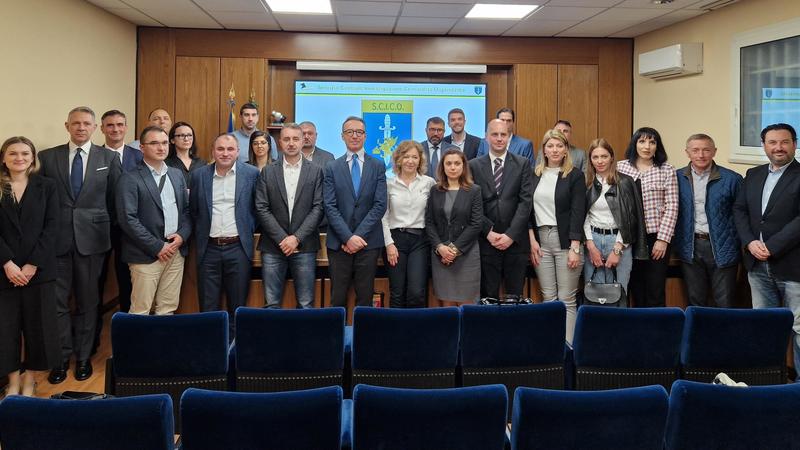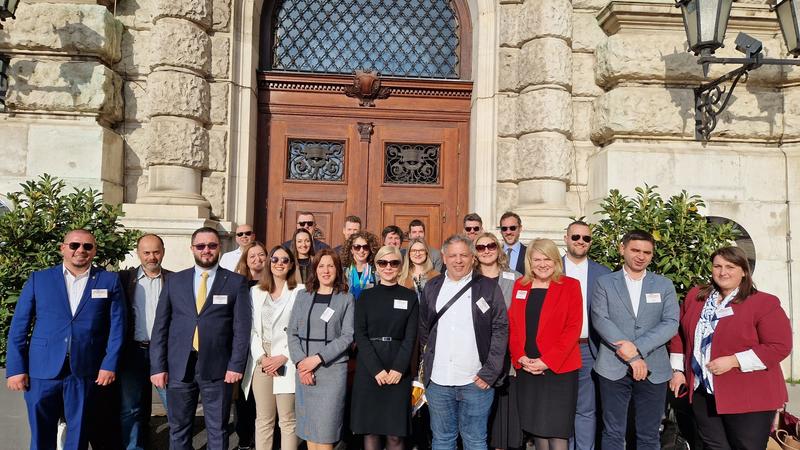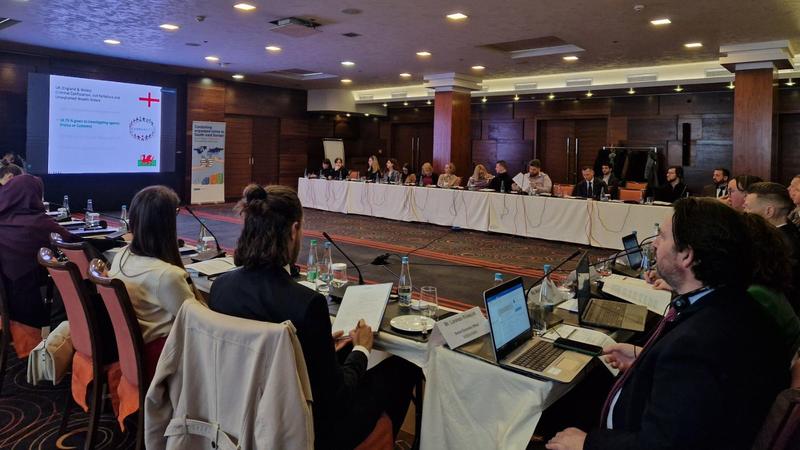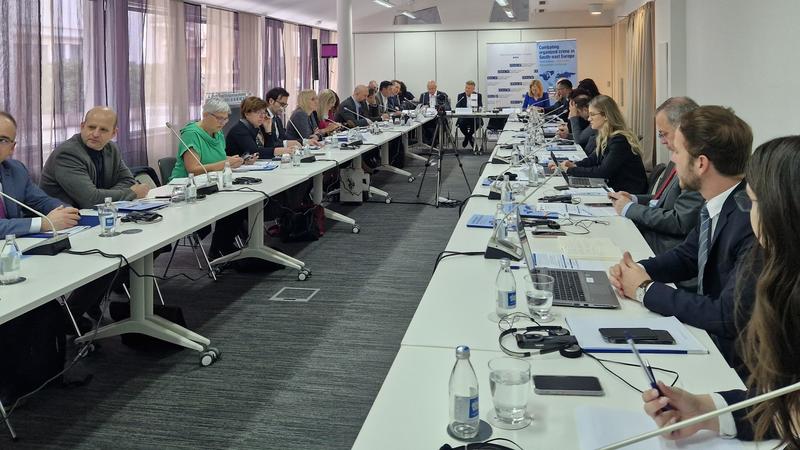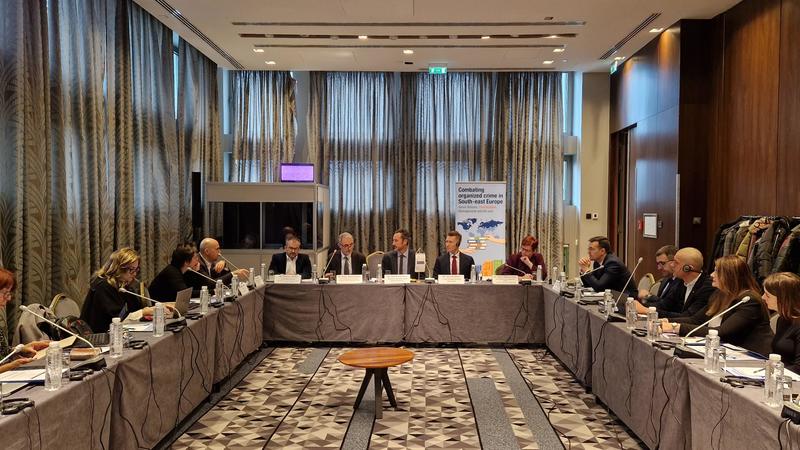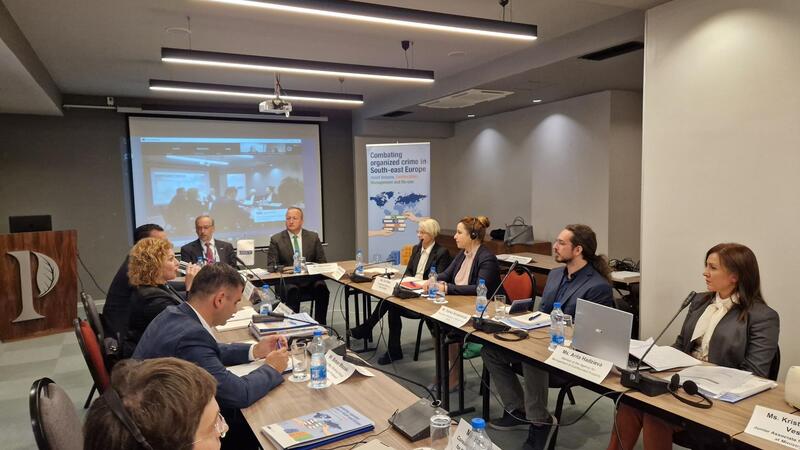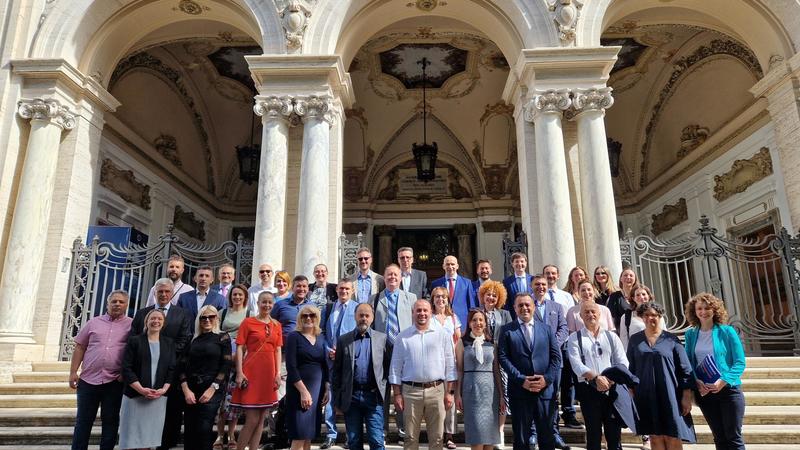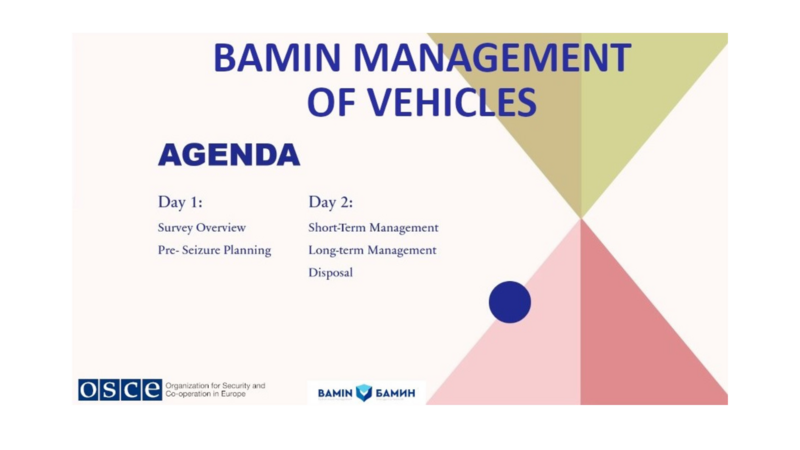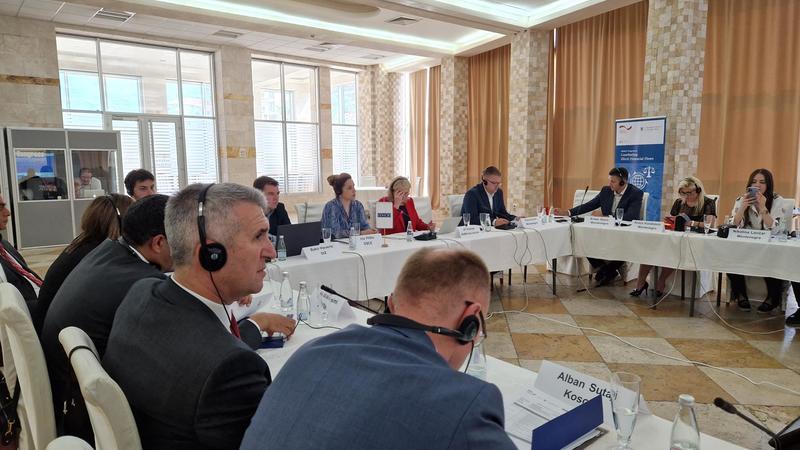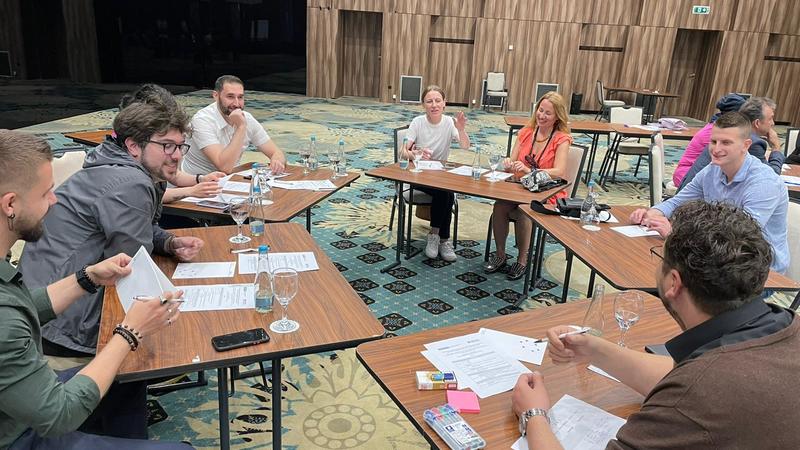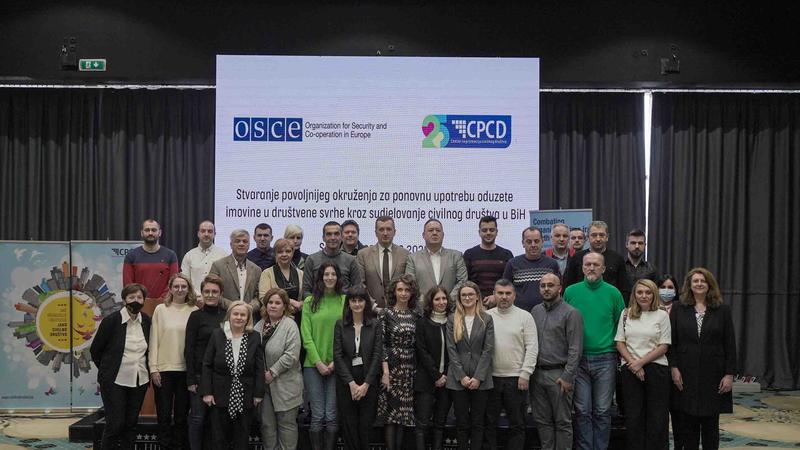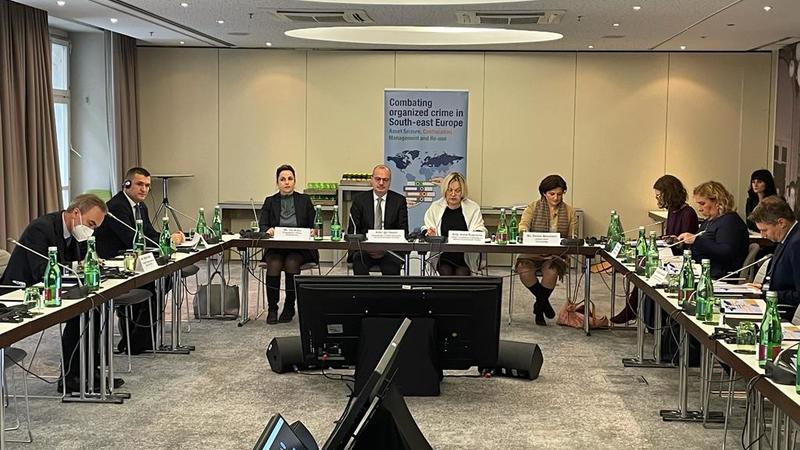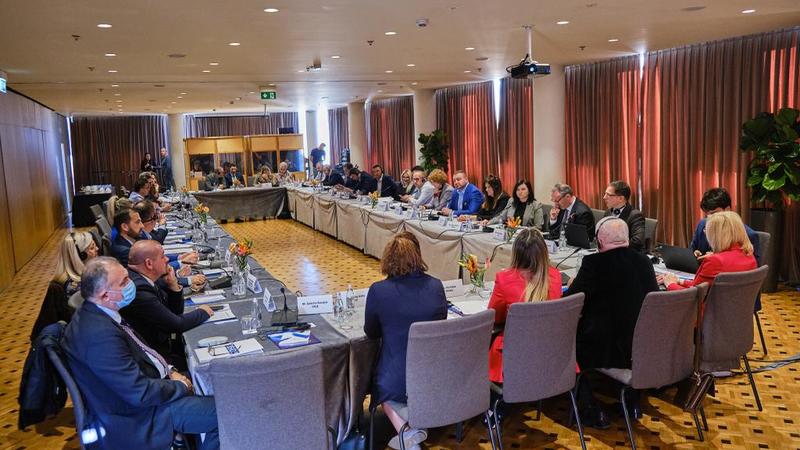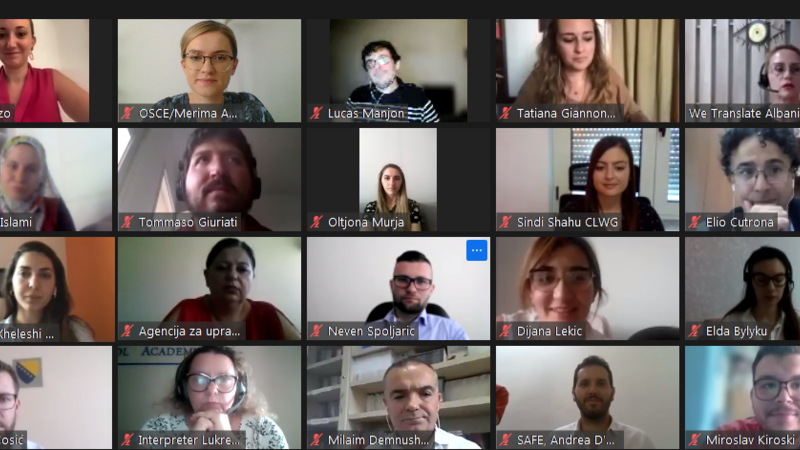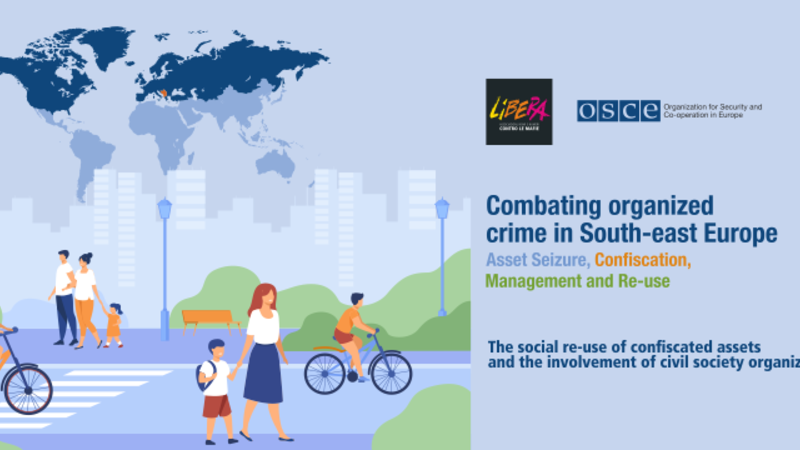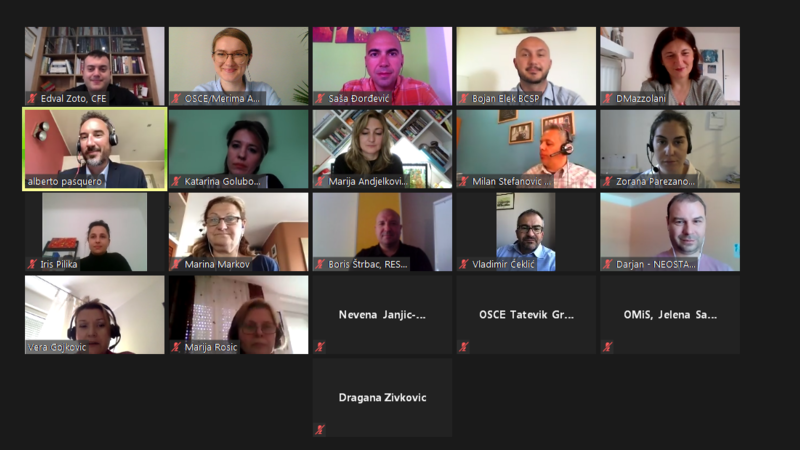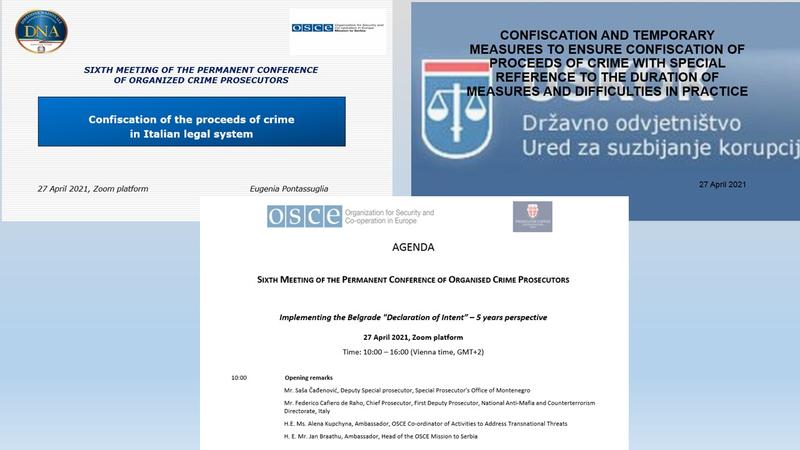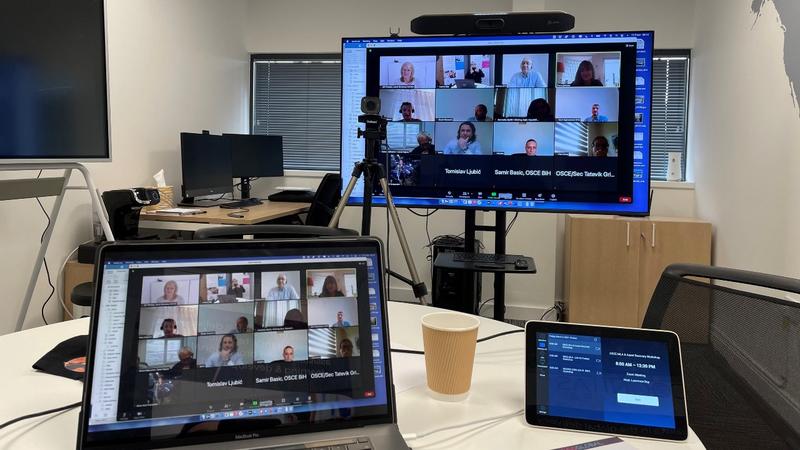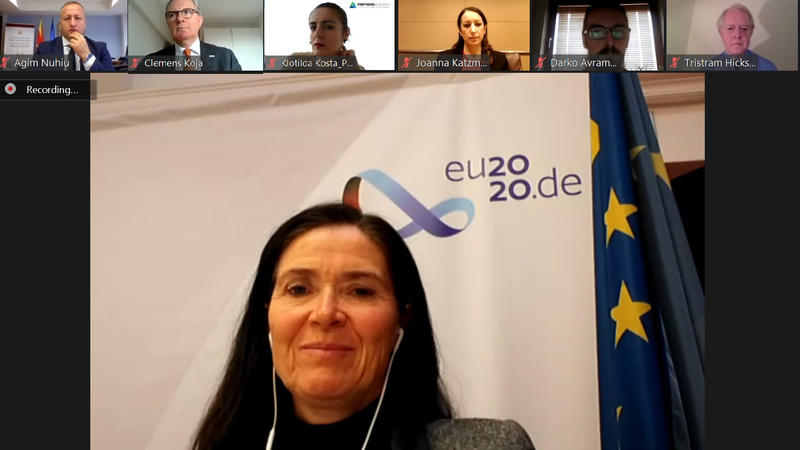Project
Strengthening the fight against transnational organized crime in South-Eastern Europe through improved regional co-operation in asset seizure, confiscation, management and re-use


Quick links
- Project period:
- 1 July 2019 - 31 August 2022
- Implemented by:
- Office of the Co-ordinator of OSCE Economic and Environmental Activities, OSCE Secretariat, Transnational Threats Department
- Fields of work:
- Economic activities, Good governance
Overview
The extra-budgetary project Strengthening the fight against transnational organized crime in South-Eastern Europe through improved regional co-operation in asset seizure, confiscation, management and re-use aims at improving the effectiveness of the fight against transnational organized crime and corruption in the OSCE region by improving regional co-operation among five participating States (pS) in South-Eastern Europe (Albania, Bosnia and Herzegovina, the Republic of North Macedonia, Montenegro, and Serbia). The project adopts a comprehensive approach by providing support to the entire cycle of asset tackling, which will be divided into three areas of intervention: (1) investigations, asset seizure and asset confiscation; (2) asset management; (3) asset re-use.
Serious and organized crime as well as corruption represent one of the biggest threats for law enforcement authorities in South-Eastern Europe (SEE) countries, and their societies. Over the years, criminal organizations have become increasingly structured, and they are not only drivers of illicit activities, but also significant economic players.
The most effective way to disrupt serious and organized crime is to confiscate the revenues from criminal activities, thus depriving criminals and their networks of financial power and undermining the fundamental purpose of criminal organizations, i.e. prospective financial gain.
Through the project, TNTD/SPMU and OCEEA are providing solutions tailored on the needs identified in each country by the OSCE.
The first project goal is to increase the use and effectiveness of asset seizure and confiscation, including through enhanced regional cooperation. The focus will be on prosecution and police. To achieve this goal, five activities are foreseen:
- Review of legal cases on asset seizure and confiscation/Trainings for judges and prosecutors.
The project is carrying out an analysis of judicial decisions to identify shortcomings in the application of the measure of asset seizure and confiscation. The findings and recommendations of the research will be used in trainings tailored for judges and prosecutors on how to improve the application of such a measure.
- Operational support to the Permanent Conference of Organized Crime Prosecutor’s Offices.
Building on a previous OSCE initiative that led to the creation of a Permanent Conference of Organized Crime Prosecutors in 2016, activities under this project aim to improve the exchange of information and mutual informal co-operation among organized crime, anti-corruption, and economic crime prosecutors.
- International certifications and membership to international professional associations.
The project has designed an on-line training and mentoring programme to prepare national officials from police and prosecution services of all beneficiary participating States, to obtain the international certification CFE - for Certified Fraud Examiner - and CAMS for Anti-Money Laundering Specialists. This will help the beneficiary States to increase the capacity of relevant institutions to deal with complex financial transactions, fraud schemes and money laundering and corruption cases.
- Operational support to regional cooperation among (police) Financial Investigative Units (FIUs).
The project will create the opportunity for members of FIUs in beneficiary countries and other participating States in the region to meet and exchange information, share best practices, and identify existing shortcomings as well as practical ways to remedy them.
The second project goal is to increase the efficiency and cost-effectiveness of asset management, including through improved regional cooperation when assets are located abroad. The focus is on asset management agencies and in particular on operational support to the newly-established Balkan Asset Management Interagency Network (BAMIN). The project is providing:
- Structural support to the Balkan Asset Management Interagency Network (BAMIN)
The project is supporting the BAMIN platform, the functioning of the BAMIN Secretariat and its representation in European fora on asset recovery and asset management. This support ensures the continuity of the work of BAMIN as a platform for enhanced regional and international cooperation and capacity building. It reinforces the international institutional role of the platform, raises awareness about the BAMIN network and expands it through the involvement of additional participating States as Observers or Associates.
- Mentoring on select asset management issues; Ad hoc trainings. Through BAMIN, the project is supporting beneficiary States through mentors/experts from other participating States with more advanced relevant experience on asset management, with peer-to-peer expertise on the management of individual assets, particularly in complex situations. The project is also providing beneficiary States with capacity building opportunities with a focus on advanced best practices such as pre-seizure planning or management of confiscated businesses, to improve technical competences of BAMIN members.
The third project goal is to promote the social re-use of confiscated assets in the region and increase public engagement in the prevention of and the fight against organized crime. The focus of this component is on civil society and policy-makers. The project is focusing on policy shifting, by promoting the importance of asset re-use for social purposes among legislatures and civil society, building awareness on social re-use, and fostering a public discourse on the role of civil society in the fight against organized crime. Some activities foreseen within this component are:
- Regional workshops on re-use of confiscated assets.
Participants will be policy makers from the region and civil society representatives that will be discussing national experiences and identify good practices.in the management of confiscated assets, with a specific focus on social re-use. The workshops will also aim to enhance regional co-operation and facilitate exchange of information among national agencies and CSOs.
- Support in awareness raising campaigns on the social re-use of confiscated assets.
Confiscated assets from organized crime groups and corruption can be socially re-used. Such assets, when given tonational institutions, vulnerable groups and victims of crime, civil society organizations and youth associations, will benefit societies and communities harmed by organized crime and corruption. This concept, although introduced in national legislation is not consistently applied. The project aims to l- inform communities and citizens about its potential and the role that their national institutions can play in this area by providing guidelines and highlighting examples of social re-use in the region.
- Guidelines for social re-use of confiscated assets.
The project will develop guidelines for policy makers, national institutions and civil society to promote the social re-use of confiscated assets.
